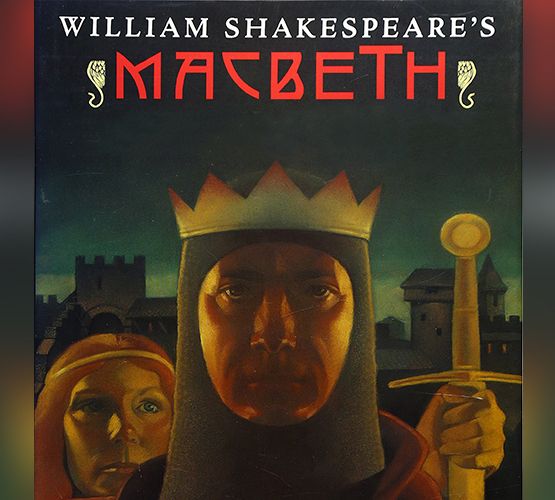Here you’ll find the list of the characters in Macbeth, including the main and supporting personages. Besides, we have provided a comprehensive description and analysis of the characters and indicated the context of their appearance in the play.
The following are the characters in the play: Macbeth, Lady Macbeth, the three witches, Banquo, King Duncan, Macduff, Malcolm, Hecate, Fleance, Lennox, Ross, Porter, Lady Macduff, Donalbain, Angus, Menteith, Caithness, Siward, Young Siward, Seyton, the three murderers working for Macbeth, the two murderers who attach Lady Macduff, Lady Macbeth’s doctor, the gentlewoman who was lady Macbeth’s caretaker, and the doctor at the English court. The play also has many attendants, soldiers, servants, and messengers.
Characters' description & summary
Macbeth is a Scottish general in King Duncan’s army. He was also the Thane of Glamis and later the Thane of Cawdor. Macbeth is depicted as a courageous soldier and a dominant man of questionable morals. Three witches approach him and prophesy that he will become the Thane of Cawdor. The three witches’ prophecy comes true and Macbeth is indeed appointed the Thane of Cawdor. Later on, the same witches approach Macbeth and prophesy that he will become the King of Scotland. This leads him to have wicked thoughts of taking over the kingship of Scotland from King Duncan, especially after the first prophecy made by the three witches came true. The wicked thoughts tempt him to murder King Duncan so that he can become king as prophesied by the witches. His wife, Lady Macbeth, is also deeply ambitious and lustful of the power and position that his husband would have if he became king. In fact, she is the one who strongly pushes Macbeth to kill King Duncan and take over power. He finally kills King Duncan and seizes power.
After he wears the crown as the king of Scotland, it becomes apparent that he was better off as a soldier because he is used to being a tyrant and dictator through the army. He continues committing more crimes and murders with ease as realizes he does not have what it takes to be a good political leader. When the kingdom is faced with problems, the only way he knows how to solve them is by fighting and killing people, especially those he feels are a threat to him. Surprisingly, Macbeth is not at ease with the atrocities he is committing. The crimes he has been committing begin to haunt him psychologically and physically. Even though he is ruthless and oppressive, he feels guilty about it.
Initially, Macbeth comes out as a strong and courageous soldier. This is seen in a number of instances such as when the wounded captain is narrating how Macbeth was a tough soldier on the battlefield. However, it later becomes apparent that Macbeth is only physically courageous but emotionally and psychologically weak. This is because he has a habit of doubting himself whenever he embarks on something. It seems that Macbeth’s self-doubt tendencies give him challenges with being brave and ambitious. He is torn between being a good soldier, taking over power as a king, and doubting whether he should proceed with his plans to take over power or not. His character comes off as weak because he has a mixed feeling of guilt and ambition.
For instance, he is not sure whether to kill King Duncan or not. Before he does it, he is so worried that he almost fails to accomplish his mission. He has to be convinced by his wife with her strong character to commit the murder. Things take an unexpected turn after the murder when Lady Macbeth’s strong character begins to fade, leaving Macbeth with a lot of worry about his deeds. Macbeth finds himself battling between his atrocities and the guilt of his actions. What is seen is a person torn between his ambitions to kill people to secure his way to the top and the guilt that haunts him when he thinks of himself as a murderer. When he can no longer continue holding power, he appears to be somewhat relieved when he knows that he is going back to doing what he is most comfortable with; being a soldier on the battlefield. He, unfortunately, dies on the battlefield.

